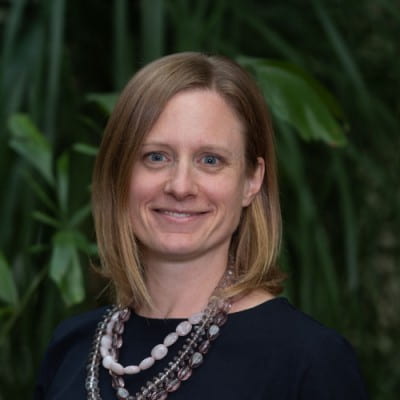
A true collaborative effort to develop a truly collaborative degree
By Anna McMenemy
Seldom do food scientists, biologists, veterinarians, and anthropologists plan an undergraduate degree together – as their own disciplines keep them busy enough – but that was exactly the case for the new Bachelor of One Health program at the University of Guelph.
The program was created by a curriculum development committee that appropriately reflected the academic diversity present in the program as well as the interdisciplinarity of One Health itself — that is a concept and an approach that recognizes that human, animal, and environmental health are interconnected.
“The committee had this drive to work as a team and build something that was holistic and representative of One Health,” says Heather Pollock, manager of academic programs for the College of Biological Science.
That’s no easy task. One Health is an approach that can be applied to a wide range of complex health issues, including climate change, pandemics, and food security. It’s also an approach that recognizes one person or one discipline can’t solve these issues alone; it encourages people with multiple different backgrounds to bring their unique perspective to the table and work together.
The One Health undergraduate program was designed with all of this in mind. Pollock helped to coordinate the process and ensure that all pillars of One Health were accounted for in the course offerings and that all sciences, including the social sciences were well represented.
The coordinating committee was constantly reviewing the desired outcomes for the degree, determining how to achieve the desired interdisciplinarity for the degree and how to accommodate for the breadth of subjects encompassed by One Health. By the end of the curriculum development process a remarkable 23 departments across six colleges had agreed to support the program which included giving access to numerous restricted courses to students in the One Health program. It was a true demonstration of the type of collaboration needed in One Health work.
The program, which will first be offered in the fall of 2022, will be structured so students have plenty of choice for course selection. All One Health undergraduate students will take foundational courses in subjects such as One Health, biology, anthropology, diversity, human impact on the environment and research methods. Based on their interests, they will have the chance to specialize further within one of four areas of emphasis: disease, complexity and health; environment, food and health; policy, economics and health; or culture, society and health.
The Guelph One Health program is a unique health studies program because it stresses the importance of the scientific and social scientific aspects of health and their connections, says Pollock. Students will have the freedom to explore subjects they possibly hadn’t thought about before through courses, projects, and group work settings.
Pollock and the curriculum development committee were very intentional about creating an unconventional health studies degree that will prepare students for a variety of education and career options. Graduates of the One Health degree will take their place as and beside veterinarians, medical professionals, public health officials, politicians, lawyers, food scientists, anthropologists, and educators. No matter what career they choose, students will have developed transferable skills – such as communication, systems-thinking, collaboration and problem solving – that are valued by employers.
“I hope students see that it’s important to branch out and look at health from a holistic perspective,” Pollock says. “This program will give them space to explore numerous options and applications.”
You can find more information and updates about the Bachelor of One Health program HERE!



